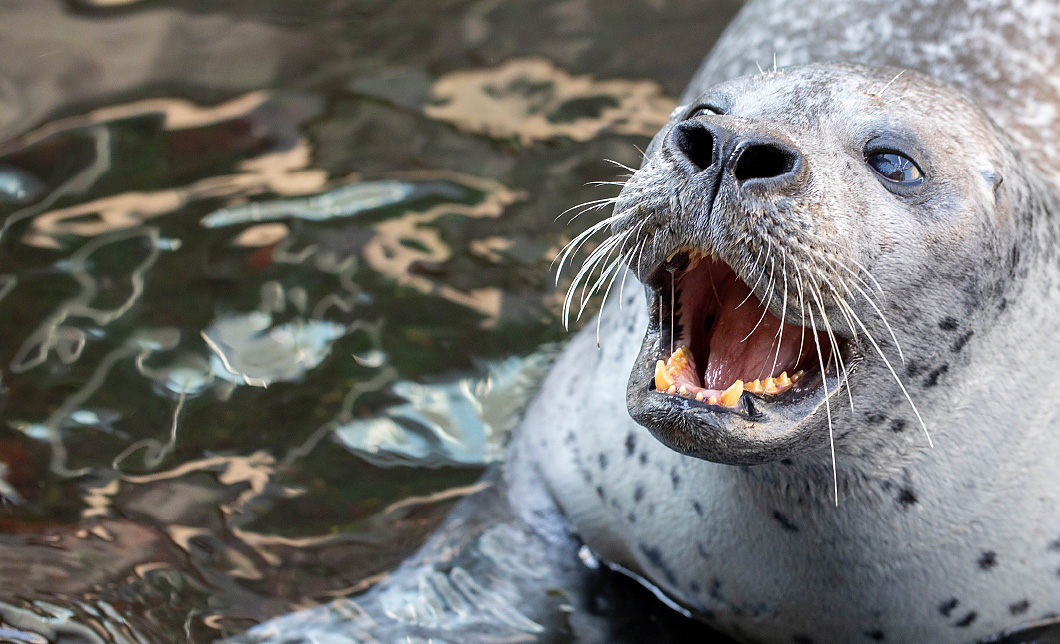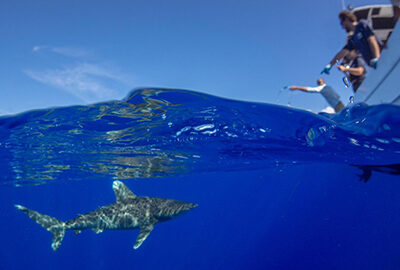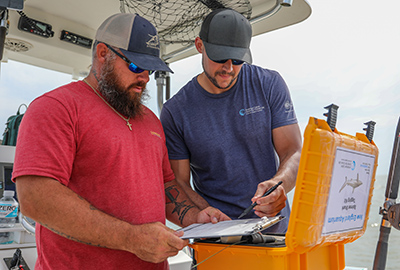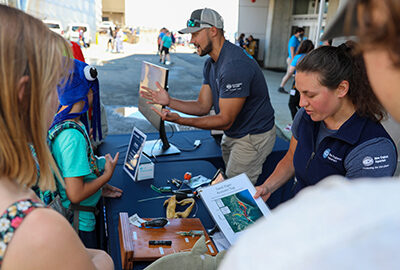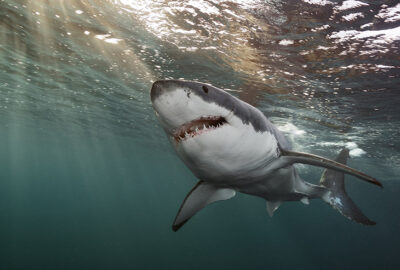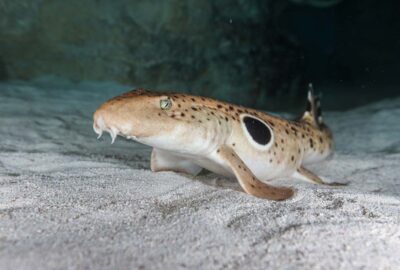Despite their popularity, sharks are a group of fishes that we know remarkably little about. New England Aquarium researchers study sharks, skates, and rays—known as elasmobranchs—to provide scientific data that can be used to improve conservation efforts. We study everything from basic life history and behavior to broad-scale movements and habitat use.
Size
Of the over 500 species of sharks, about 80% are four feet long or less
Diet
Some sharks consume bigger fish, marine mammals, and even other sharks, while some filter feeder species dine on plankton
Lifespan
Many sharks live for about 20–30 years in the wild, but some live much longer
Threats to Survival
- Overfishing and bycatch
- Climate change
- Habitat loss
Our Work to Protect Sharks
The Aquarium works with government, industry, and environmental stakeholders to find solutions to threats facing sharks. Here are a few ways we are working to protect these fascinating animals.
Nurse Shark Courtship and Mating in the Dry Tortugas
For many years, we’ve been surveying nurse shark courtship and mating behaviors in the Dry Tortugas off the coast of Florida. This research is a unique continuous study of shark behavior in a single environment—a habitat that acts as a “natural lab” for studying these animals.
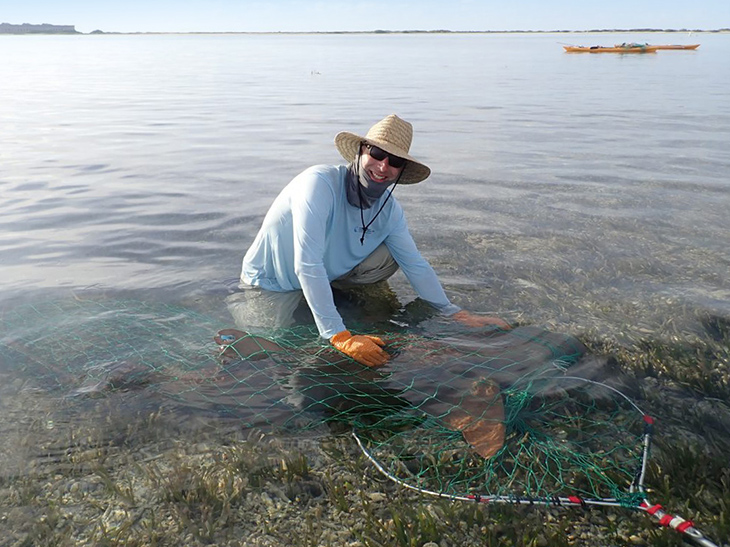
Effects on Sharks Caught and Released from Fishing Gear
Many sharks are caught as bycatch in commercial and recreational fishing and are discarded back into the ocean. Our scientists monitor the mortality rate among fish that are discarded, and use that data to inform best practices in order to improve the sharks’ survival rates.
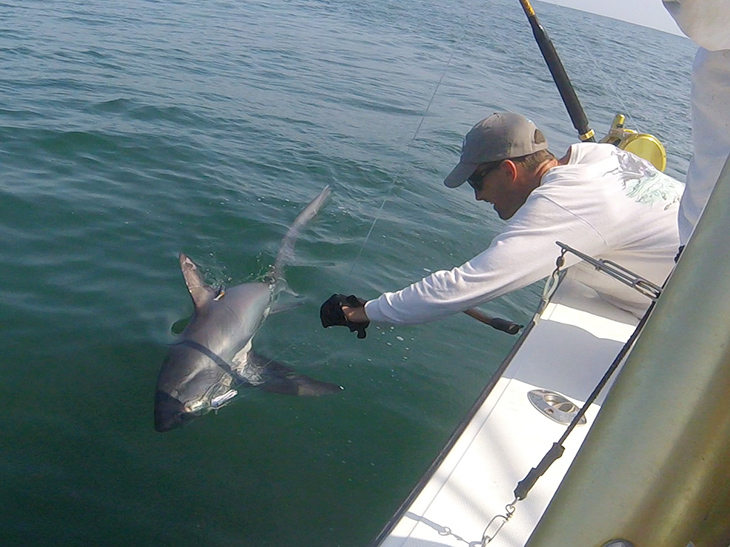
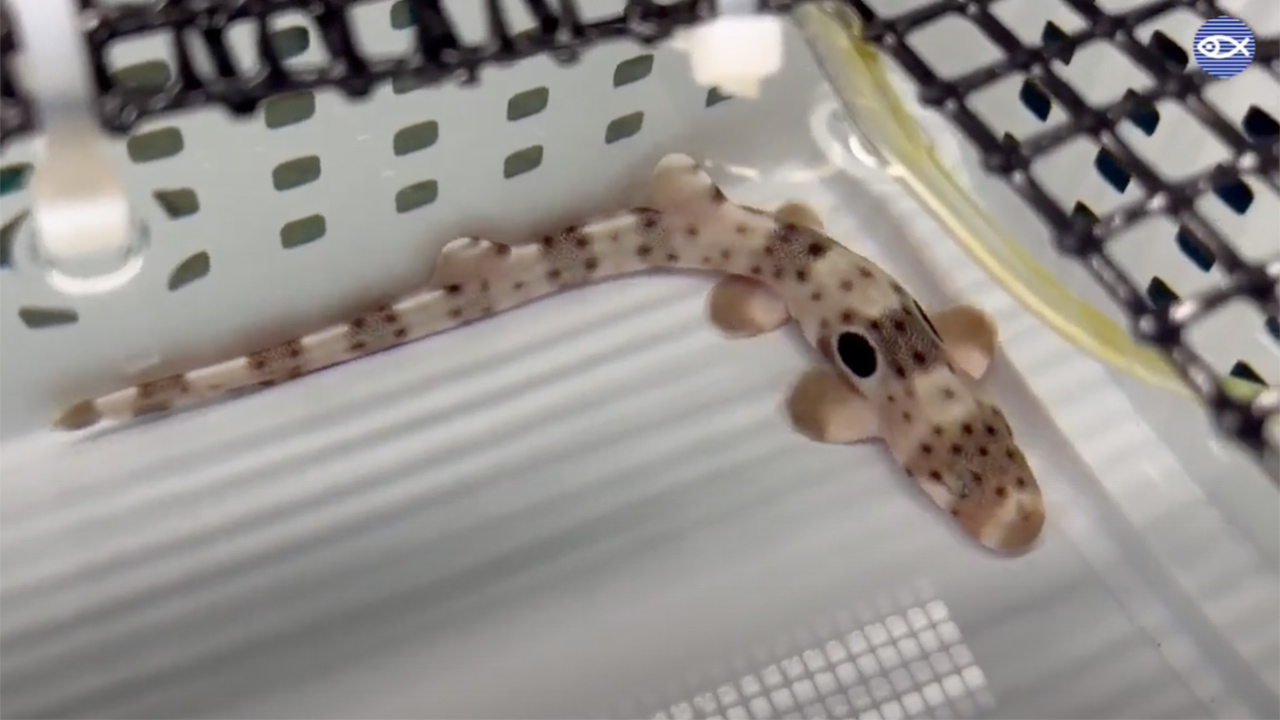
Animal Care: Raising Shark Pups
Did you know we raise shark pups behind-the-scenes at the Aquarium? The various species of pups include epaulette sharks, coral catsharks, chain catsharks, and cloudy catsharks. In this video, you'll get to see a few of our epaulette shark and coral catshark pups!
Supporting Locally-Led Action Worldwide
The Aquarium's Marine Conservation Action Fund provides support for community-based projects spearheaded by local conservation leaders in low- and middle-income countries around the globe. The program has funded 38 shark conservation projects across 15 countries since 1999.
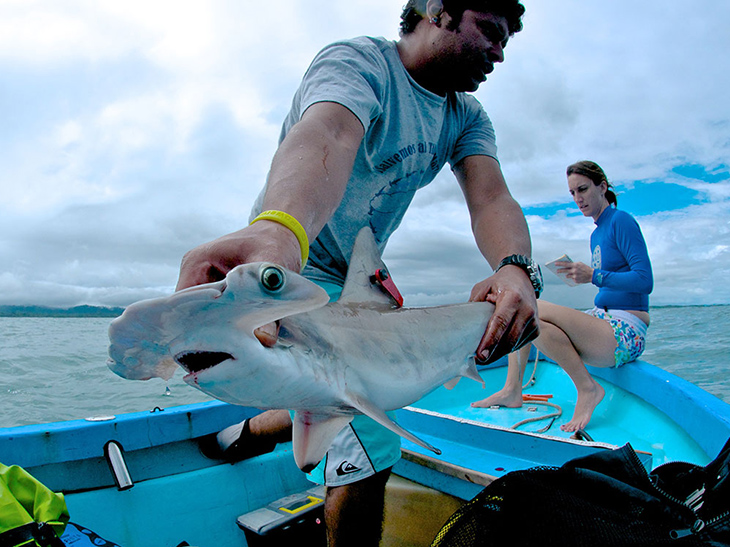
What Are Some of the Impacts of This Research?
By increasing our understanding of sharks’ movements and behaviors, we can help inform policies that better protect these animals. Studying shark movement, behavior, and habitat use also helps us understand their population structure, how they are affected by climate change, and which areas we should prioritize for protection.
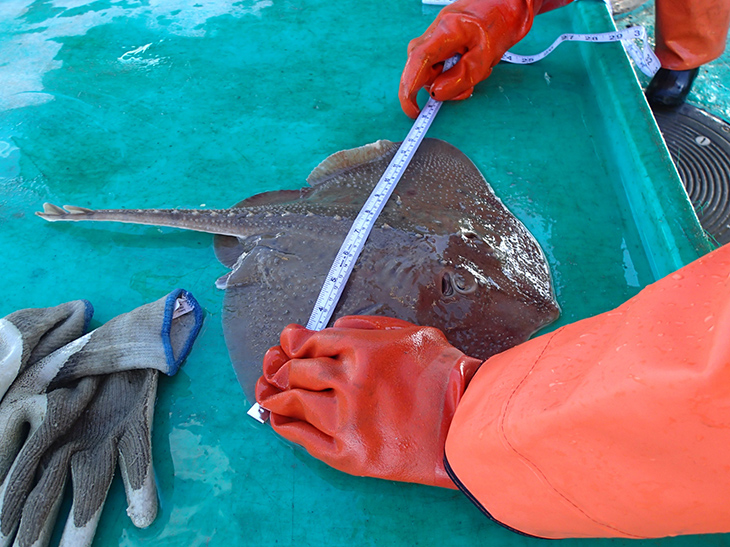
Ask the Expert
Learn more about sharks with senior scientist Dr. Nick Whitney.
Are there sharks in Boston?
00:21Can I help sharks?
00:19How does the aquarium support shark research?
00:31What challenges do sharks face?
00:43




Shark Research is a Team Sport
Scientists for our Anderson Cabot Center and experts from our Animal Care team collaborated on a study to develop an understanding on how sharks are affected by climate change. What they found is that as their ocean environment warms, baby epaulette sharks are born smaller, exhausted, and undernourished.
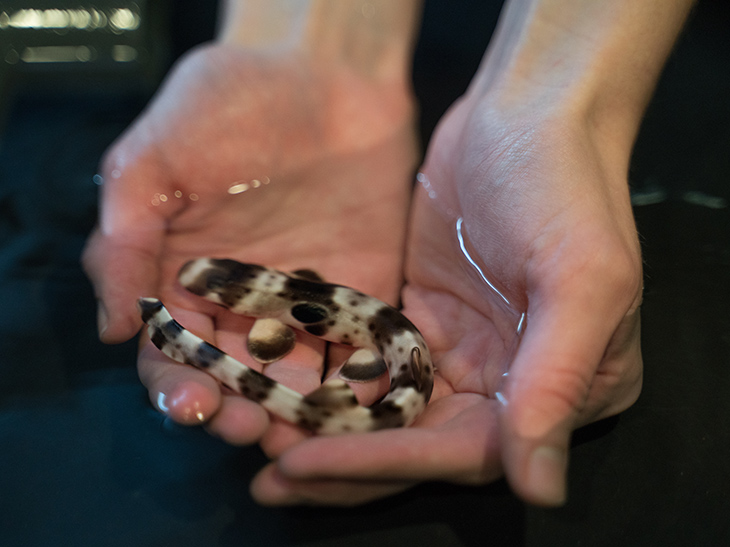
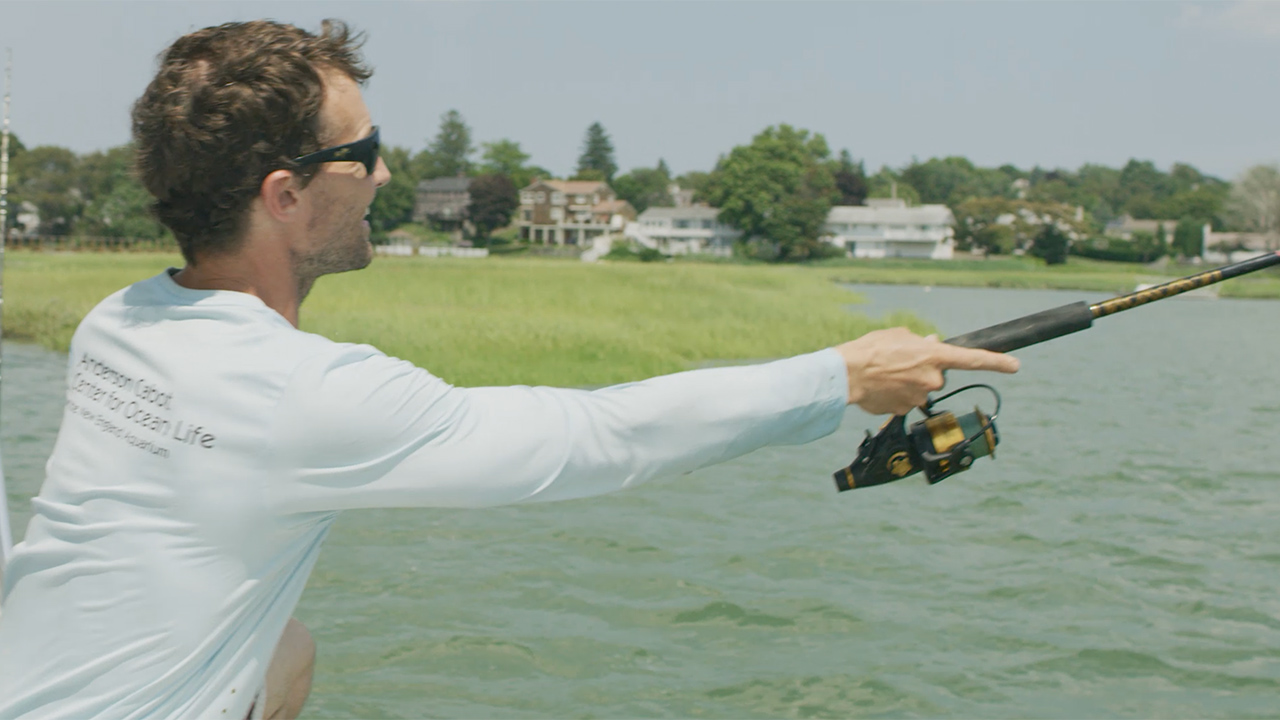
Coastal Shark Ecology in Massachusetts
We monitor shark movements to learn about key habitats used as feeding, breeding, or nursery grounds and to gain insight into the influence of changing environmental conditions on shark migration.
Shark Stories

